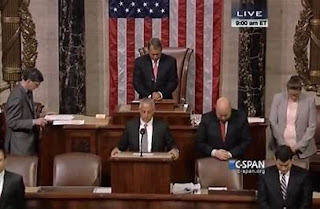Why do Christians Claim Prayer Works When it Doesn't Work
There is a sign I have seen posted in farm fields, "Prayer Works." The sign must be for sale at Christian supply houses somewhere.
There is the constant promise, "I will pray for you." We've all heard the phrase "thoughts and prayers."
Does all that praying do any good? Not according to a study done at least a couple of decades ago. In that study, as I recall it, two groups of patients were selected. One group had people pray for its recovery. Another group had no known people praying for recovery. The two groups had the same results. Those who had prayers did no better than the one with no prayers.
Add to that the disclaimer which requires the person praying to to acknowledge his/her petition will be granted only if God chooses to do so. God's (thy) will be done.
I think a rational person praying would look around to see if God is just. The person who tithed should get more prayers answered than the tightwad who gives nothing. The person who tried not to sin and asked for forgiveness when he did sin should get more prayers answered than the person who gave God the bird. But, if the unworthy got better deals than the faithful would not the faithful decide to walk? I'm guessing millions do walk every year just because the promise of God answering prayers of the unworthy more often than the worthy.
I know it is said a good Christian does not think she has a right to God's decision. But, isn't it human nature to expect something when you give something? My guess is those who wrote the Bible and/or write sermons know people are not prone to do the same thing over and over when it results in nothing. So, they tried to implant in minds not to expect too much. Clever strategy.
Slowly the odd icon, public prayer, is being removed from public events. Prayer in schools was made not constitutional decades ago. Attempts are made to keep it in schools and public meetings but resistance is growing.
Prayers accomplish nothing. If one's religion demands prayer than it can be practiced in some setting where it does not involve those who dislike it or where it is unconstitutional.




I enjoy your blogs, and had to comment on prayers. You may have referred to a Johns Hopkins study some time ago. As I recall in the report in my JHU alumni publication, the study was a little more complex than you mentioned. My recollection is that there were at least 4 groups of patients in the trial, including one group that had hands-on local prayer (with consent), another with remote prayer and notification to the patient of the prayers, then another with remote prayer without notification, as well as the control group without any prayer or notification.
ReplyDeleteAs us scientists expected, remote prayer without notification and the control group had similar results. Not surprising, the hands-on local prayer group did a little better; this is usually called the placebo effect; a positive outlook is good. Conversely, the group with remote prayer and notification did a little worse. It seems that the notification of remote prayer increased anxiety, which is not good. Maybe we should call this the sugar pill vs. bitter pill effects.
I recall the professor in my JHU graduate class (many years ago) mentioning the anecdotes of patients doing better if they were happy, liked their doctors, and went to Sunday School. The concern is what is causation, or just correlation.
Arden--Thank you for your recollection of the study. I read all about it some years back but had forgotten the details. It is quite an innovative idea for research. It represents the kind of work the fields or social sciences and humanities do that make important contributions to society. These are when giant beliefs, maybe myths, that permeate society are addressed. "Prayer Works" is one of them.
ReplyDeleteRecently, a much larger one, The Turnaway Project, studied what happens to women who either have or do not have abortions. It poked holes in the biggest balloons of anti abortion politics.